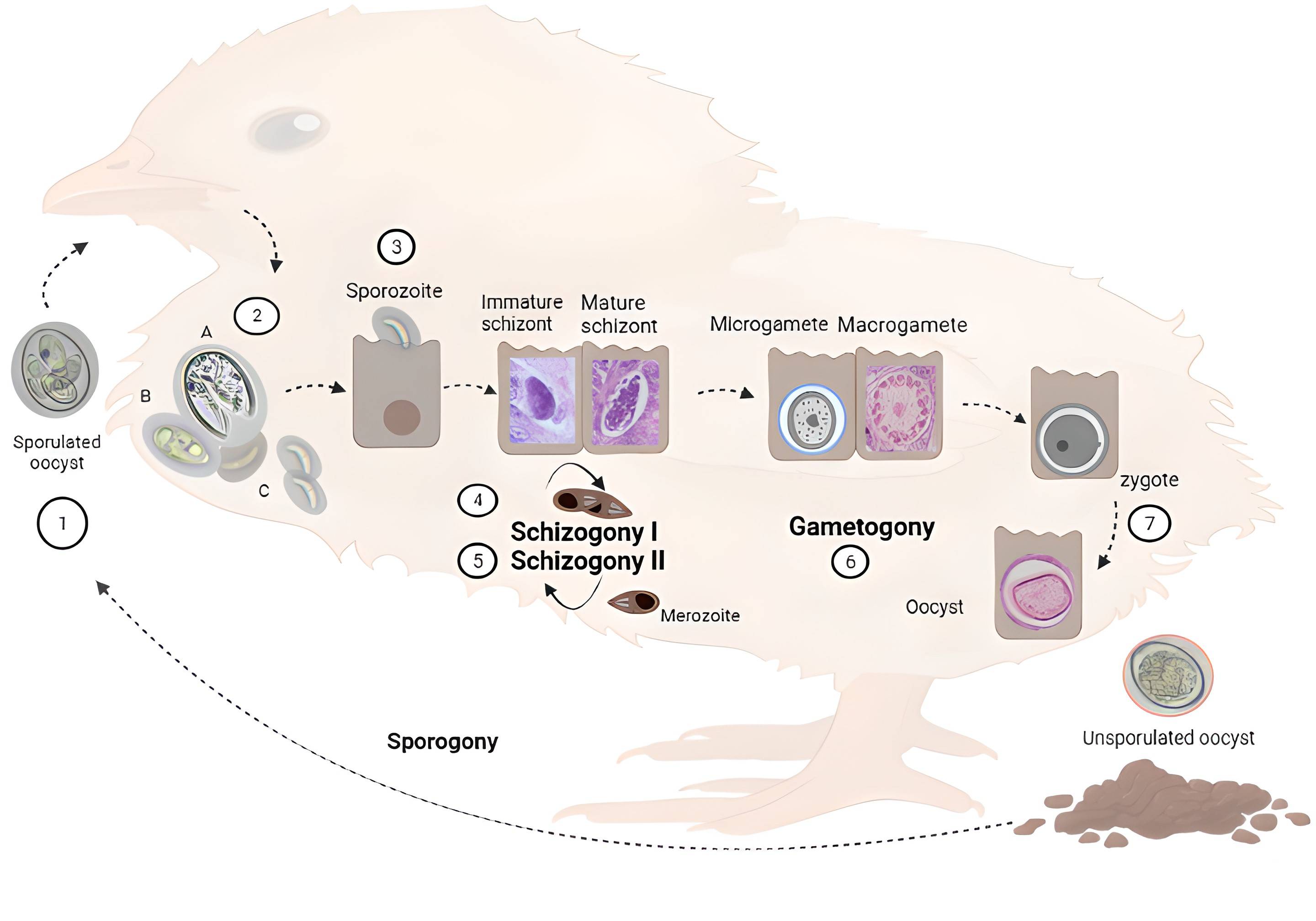The coccidiosis group of INTA-Argentina has recently published an extensive and detailed review on proteins of therapeutic interest of the Eimeria parasite that infects chickens and hens that contributes to the knowledge of coccidiosis.

The coccidiosis group of INTA-Argentina recently published in the open-access international scientific journal Life (ISSN 2075-1729), whose scopes are the fundamental topics in the life sciences, and is edited by the Multidisciplinary Institute of Digital Publishing (MDPI) . The article entitled “What do we know about the surface proteins of Eimeria species infecting chickens?” The support of FONTAGRO in frame with the Technical Cooperation "Agroecological model for avian coccidiosis" (ATN/RF 18136 RG), an initiative led by Dr. Anabel E. Rodriguez, enabled its publication. Dr. Mariela L. Tomazic, CONICET- associate researcher at the IPVET (INTA-CONICET), CICVyA, INTA-Argentina, and professor at the Faculty of Pharmacy and Biochemistry of the UBA, who conceptualized the work expressed: “Thanks to the results that were generated in the project that we carried out in family poultry production where the occurrence of the circulating Eimeria species were identified, we understand the importance of having accurate information to develop efficient control strategies. The question arose: What information do we have about the main infecting species of chickens to generate next-generation vaccines? And trying to answer it, we realized that there was unbalanced information addressed to the study of the most pathogenic species that generated a gap regarding the rest of the species and also about the function that these proteins possess in the life cycle of the parasite." The detailed review aimed to provide a baseline, supporting information on the surface proteins of the seven species that affect chickens and hens that are therapeutic targets. This class of proteins is relevant for the development of new-generation vaccines and is a promising strategy to effectively control avian coccidiosis caused by the protozoan parasite Eimeria sp. This disease affects the health of chickens, causing poor performance and productivity. Current control measures have many disadvantages and are being questioned and some are even banned under the “One Health” framework. Therefore, new control strategies are required.
In this work, around 130 bibliographic citations that describe the surface proteins of Eimeria species were reviewed and compiled, emphasizing on the interaction with the host and their role as vaccine candidates. The function of some of them in the possible generation of resistance to chemical drugs and in the evasion of the host's immune response is also explored, both of which are relevant aspects since they can limit or weaken control strategies such as chemo or immunoprophylaxis. This article was also republished in the encyclopedia, MDPI Encyclopediahttps://encyclopedia.pub/entry/45734, increasing its visibility, and allowing it to reach a greater number of readers.
In addition to contributing to the knowledge of avian coccidiosis, this work consolidates and strengthens an international collaboration with the researcher Virginia Marugan-Hernandez from the Royal Veterinary Collage of the United Kingdom, with whom the working group has been working for some years, expanding the network of ties in the overall goal of developing effective control measures for avian coccidiosis.




